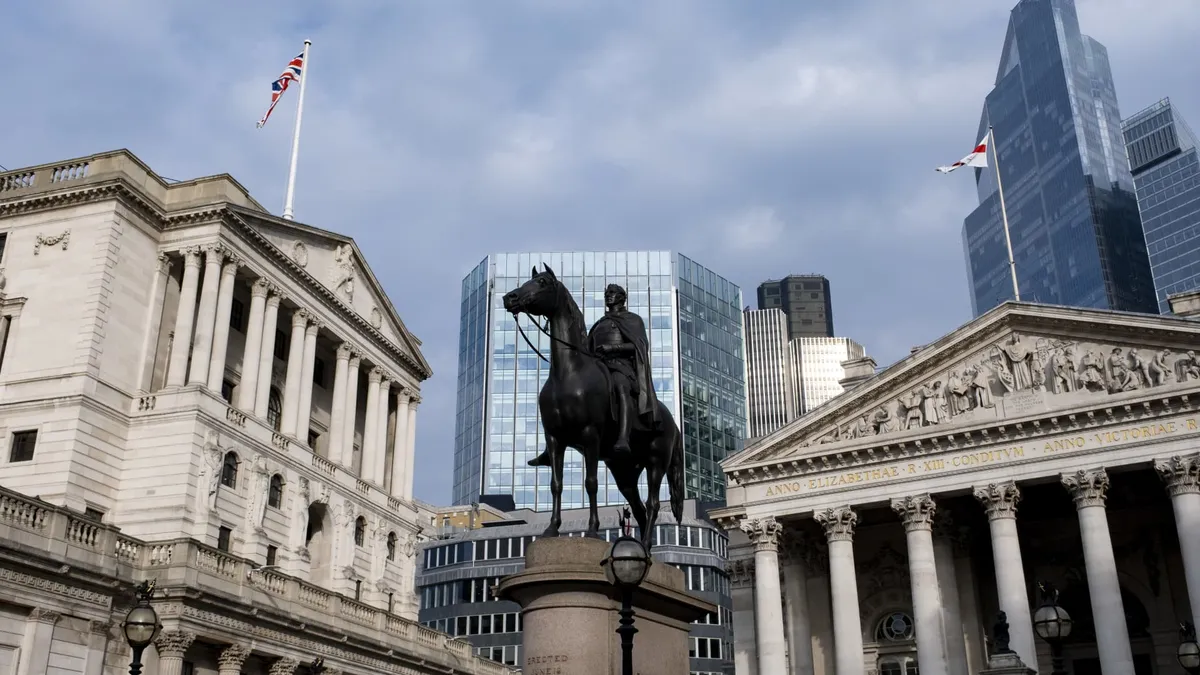
The Bank of England has decided to keep interest rates unchanged during its recent meeting on Thursday, as the U.K. economy grapples with significant uncertainty surrounding global trade and impending stagnation at home. The widely anticipated decision maintains the central bank's benchmark interest rate at 4.5%.
In an official statement, the Monetary Policy Committee (MPC) voted with an 8-1 majority to keep rates steady, although one member did advocate for a reduction of 25 basis points. Since the MPC's last meeting, there has been an increase in global trade policy uncertainty, particularly following a series of tariff announcements from the United States, which have elicited various responses from other governments. Furthermore, geopolitical uncertainties have escalated, leading to a rise in indicators of financial market volatility on a global scale.
This decision comes at a time when both international and domestic economic conditions are marked by potential headwinds. Globally, the U.K. economy faces challenges such as the unpredictable shifts and conflicts related to U.S. President Donald Trump's trade tariffs, which could significantly impact inflation and economic growth in the U.K.
Recent data indicates that the U.K. economy has begun to show signs of weakness, contracting by 0.1% month-on-month in January. In February, the Bank of England halved its growth forecast for 2025 to just 0.75%. The central bank’s recent assessments suggest that business indicators point toward a decline in economic growth and employment intentions.
In February, the Bank of England projected that inflation would see a temporary spike, expected to reach 3.7% in the third quarter of this year, driven by rising energy costs. Indeed, U.K. inflation surged unexpectedly to 3% in January, prompting concerns about the economic outlook.
Looking forward, the central bank emphasized the need for a gradual and prudent approach to the withdrawal of monetary policy constraints. However, it cautioned that this strategy is contingent upon the future development of the economy. If demand weakens relative to supply, it could lead to reduced inflationary pressures, potentially leading to a less restrictive interest rate path.
Conversely, if supply remains constrained while demand persists, alongside rising domestic wages and prices—especially from the anticipated second-round effects of increased CPI inflation—the Bank of England may consider a tighter monetary policy path.
The timing of Thursday's meeting is particularly significant, as it closely precedes upcoming changes to U.K. government taxation, which have been met with disapproval from businesses. Critics argue that the rising tax burden could adversely affect growth, investment, and job creation.
Additionally, the U.K. Treasury's Spring Statement is set for March 26, where British Chancellor Rachel Reeves will outline plans for the economy amid pressure to either cut public spending, increase taxes, or adjust the government’s self-imposed fiscal rules in light of higher borrowing costs.
This story is still developing; please check back for updates as new information becomes available.
— Report contributed by CNBC's Holly Ellyatt.